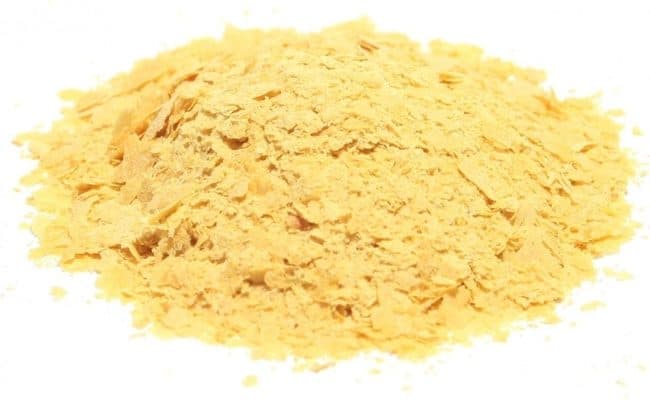
Amino acids are the building blocks of proteins. There are 9 essential amino acids, meaning the body doesn’t make these amino acids and they have to come from food. The other 11 amino acids can be made in the body.
Most people don’t have to worry about getting enough protein. In fact, most people get well above the minimum recommended level.
Protein or amino acid supplements are one of the most popular dietary supplements for athletes and people who start exercising. Consuming adequate protein is necessary to retain muscle mass during weight loss, limit muscle breakdown from exercise and maximizing muscle synthesis.
Therefore, people can assume if they start exercising they can benefit from increasing their protein intake.
Endurance and strength athletes do have a higher protein need compared to sedentary people, but most athletes still get more than enough protein from their diet if they eat adequate calories and get between 20-35% of daily calories from protein.
A 2005 review article (1) suggests no additional dietary protein is suggested for healthy adults undertaking resistance or endurance exercise.
Amino acid supplements are marketed as potentially increasing anabolic steroid production in the body, preventing overtraining wear on muscles or preventing muscle fatigue (2).
However, are these claims valid? Is there any benefit for amino acids helping build muscles faster?
Delayed onset muscle soreness
A 2006 study (3) looked at the impact an amino acid supplement comprised of 9 essential amino acids and 3 non-essential amino acids would have on muscle soreness.
Researchers found this amino acid supplement did impact muscle soreness in study participants when ingested on recovery days.
Taking the amino acid supplement before exercise and immediately after exercise did not attenuate muscle soreness.
The effect was only seen when amino acids were taken in addition to these times up to 4 days after exercise.
There is also some evidence to suggest taking branched chain amino acids in the amount of 5 mg/kg body weight before exercise may help lower muscle soreness (4). However, researchers conclude more research is needed to understand the relationship between amino acids and lowering muscle soreness.
Muscle loss with aging
Muscle loss happens as people age. Exercise and diet can impact the rate of muscle loss and may even reverse this effect of aging. Not eating enough protein, especially in the elderly population, can make muscle loss more dramatic.
Some evidence has suggested supplementing essential amino acids, especially branched chain amino acids, can help negate protein loss in the elderly population (5).
Therefore, researchers are looking into the option that long term essential amino acid supplementation may be beneficial for prevention of muscle decline seen with aging.
These conclusions are based mostly from short term studies, and researchers suggest more long term clinical trials are needed for efficacy of preventing muscle mass loss with aging.
Branched chain amino acids
The branched chain amino acids (BCAA) are valine, leucine and isoleucine. The BCAA account for about 20% of amino acids in muscles (6), and some studies have shown supplementing before, during or after exercise with BCAA may be beneficial.
For example, leucine in particular has been shown in some studies to promote muscle synthesis and limit muscle breakdown. This suggests leucine in particular may be a modulator of protein metabolism.
Some studies have shown supplementing with BCAA may help promote muscle growth, limit muscle soreness and hamper muscle breakdown with exercise.
However, not all studies have shown a benefit from BCAA supplementation. A 2005 review (7) concluded current research doesn’t support supplementing with BCAA has a benefit for muscle growth, but more research is needed.
Glutamine
Like BCAA, glutamine is another amino acid that is theorized to be beneficial for muscle growth. Athletes who over train can have decreased plasma glutamine levels, and glutamine may promote muscle glycogen synthesis (8).
However, studies with glutamine supplementation several short and long term studies haven’t shown a benefit from glutamine supplementation and muscle mass or strength.
A mixture of amino acids
Some supplements provide a mixture of essential or even some non-essential amino acids.
Do these help build muscles faster?
In general, most studies have not shown a benefit from taking amino acid supplements that translates to more muscle mass, more strength or faster recovery.
What has more validity behind it is consuming a mixture of protein and carbohydrate after exercise to stimulate muscle glycogen synthesis and muscle repair (9).
If an amino acid supplement claims it will help you build muscle faster, be cautious. Supplements can be expensive, and you can get all your protein and nutrient requirements met by using real food.
Muscle repair and growth takes energy, so if you are not eating enough total calories muscle growth will be hampered no matter how many supposed muscle building supplements you take.
Conclusion
Most people do not need amino acid supplements to support their training. Most people can easily meet their protein needs through a healthy, balanced diet.
Athletes with elite training goals may benefit from some sort of supplement before or after exercise with amino acids, protein and/or carbohydrate.
Studies looking at the benefit of amino acid supplementation on muscle benefit are mixed. Some studies have shown a benefit on delaying muscle soreness or improving muscle synthesis, but not all studies show a clear benefit. Also, more long term studies are needed.
Therefore, researchers suggest amino acid supplements do not have a clear benefit for short term muscle growth.
There may be a benefit to amino acid supplementation to combat muscle loss associated with aging. However, more long term research is needed for this.
Amino acid supplements can be expensive and are often unnecessary.
If you are wondering if a supplement would be right for you, speak with your healthcare team before taking a supplement.
Eating the right amount of energy and quality food sources that are nutrient dense is best for overall health.










